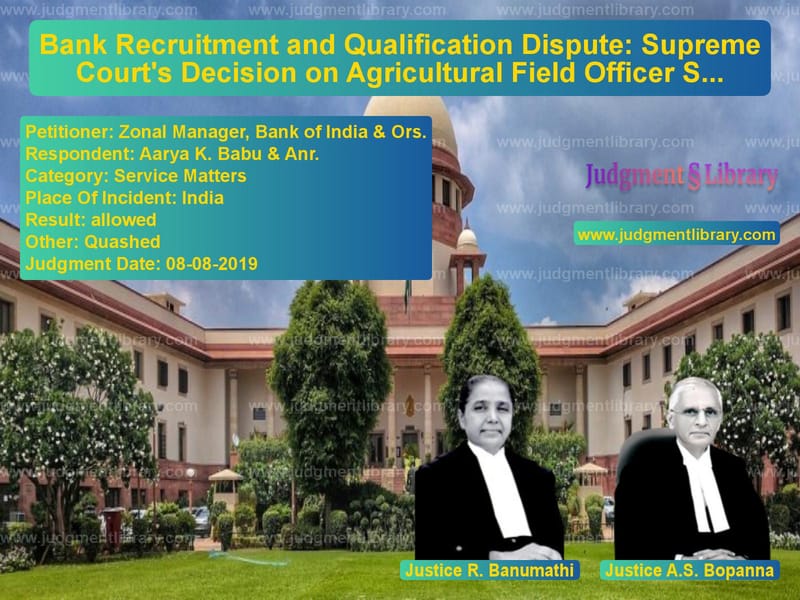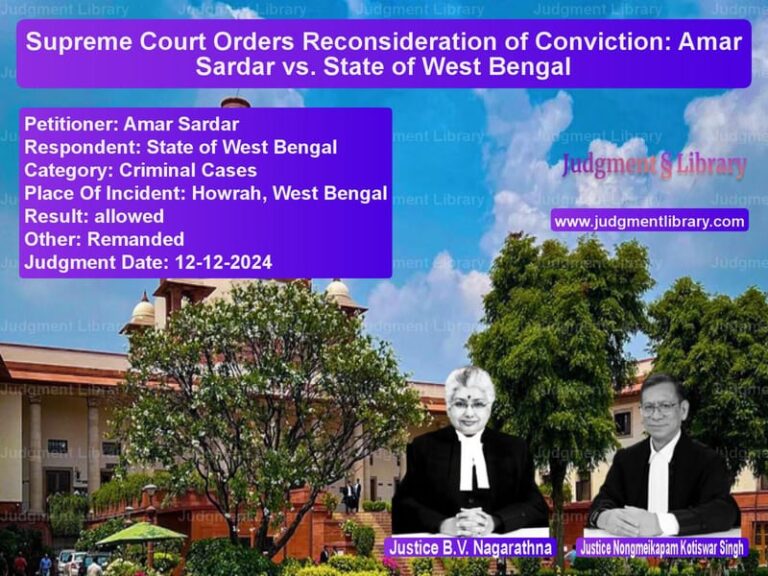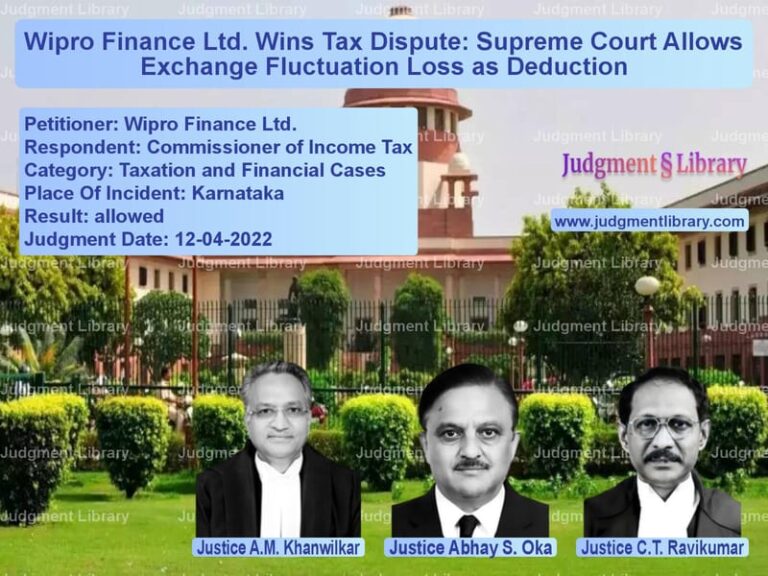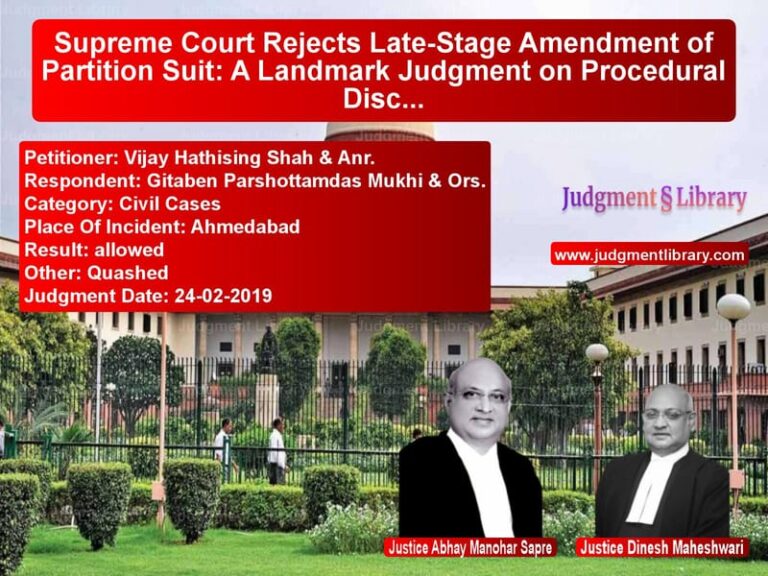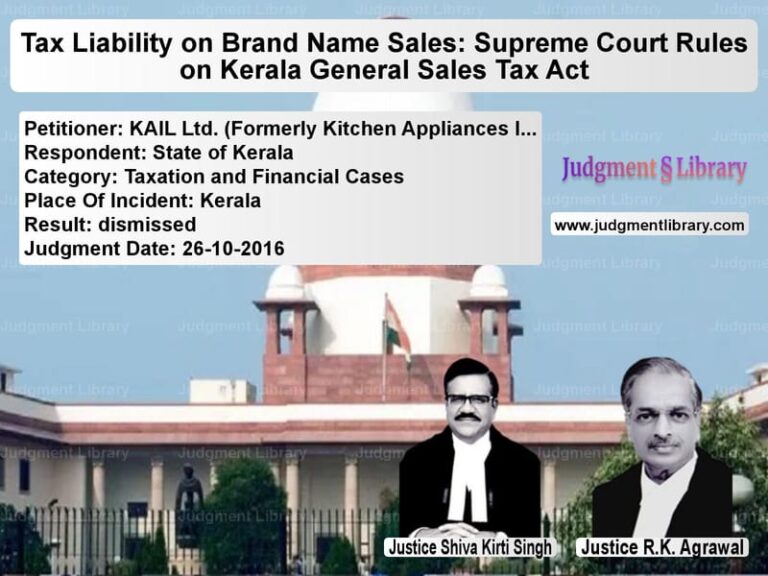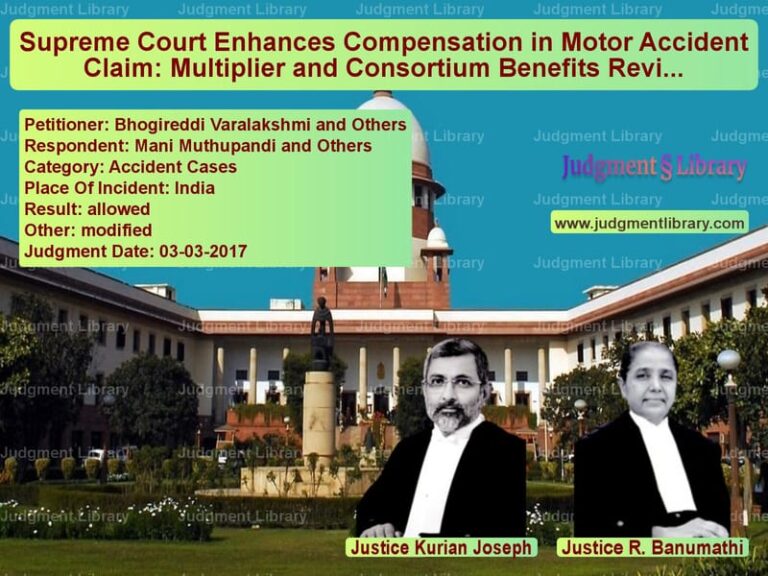Bank Recruitment and Qualification Dispute: Supreme Court’s Decision on Agricultural Field Officer Selection
The Supreme Court of India recently ruled in the case of Zonal Manager, Bank of India & Ors. vs. Aarya K. Babu & Anr., addressing a dispute related to the eligibility criteria for the post of Agricultural Field Officer in banks. The case revolved around whether candidates with a degree in Forestry could be considered eligible when the recruitment advertisement specifically mentioned Agro-Forestry as a qualification.
Background of the Case
The dispute arose after the Institute of Banking Personnel Selection (IBPS) issued a notification on November 17, 2014, for the recruitment of Agricultural Field Officers (Scale-I). The advertisement specified that candidates must have a four-year degree in “Agriculture, Horticulture, Animal Husbandry, Veterinary Science, Dairy Science, Agricultural Engineering, Fishery Science, Pisciculture, Agricultural Marketing & Cooperation, Cooperation & Banking, or Agro-Forestry.”
The private respondents, who held a four-year degree in Forestry, applied for the post and were provisionally selected. However, their selection was later canceled by the respective banks (Bank of India and Syndicate Bank) on the ground that they did not possess the exact qualification prescribed in the recruitment notification.
Aggrieved by this decision, they approached the Kerala High Court, which ruled in their favor. The banks, dissatisfied with the High Court’s ruling, appealed to the Supreme Court.
Key Legal Issues
- Whether candidates with a degree in Forestry could be considered eligible when the recruitment notification specified Agro-Forestry.
- Whether courts could interpret or modify eligibility criteria prescribed in a recruitment advertisement.
- Whether a corrigendum issued after the notification could be applied retrospectively to benefit candidates.
Arguments by the Petitioner (Banks)
The banks argued:
- The recruitment notification clearly listed Agro-Forestry as a required qualification.
- Forestry and Agro-Forestry were distinct fields, and the recruitment authorities never declared them equivalent.
- The corrigendum issued on January 16, 2016, which included Forestry as an eligible qualification, could not be applied retrospectively.
- Allowing ineligible candidates would be unfair to others who did not apply due to the specific eligibility criteria.
Arguments by the Respondents
The respondents countered:
- There was no four-year degree program in Agro-Forestry in India at the time of recruitment.
- The Indian Council of Agricultural Research (ICAR) recognized Forestry as an allied field of Agriculture, including Agro-Forestry.
- The corrigendum confirmed that Forestry should be treated as an eligible qualification.
- The rejection of their selection was arbitrary and against the principles of natural justice.
Supreme Court’s Observations
1. Adherence to Recruitment Rules
The Court emphasized that recruitment must adhere strictly to advertised qualifications. It stated:
“The qualification criteria published in the notification are sacrosanct. Any changes must be explicitly stated and applied prospectively.”
2. Forestry and Agro-Forestry Are Not Automatically Equivalent
The Court noted that the recruitment authorities did not equate Forestry with Agro-Forestry. It held:
“The determination of equivalence is a policy decision that falls within the domain of the employer. Courts should not assume or declare equivalence in the absence of such a declaration by the employer.”
3. No Retrospective Application of Corrigendum
The corrigendum issued in January 2016 allowed Forestry graduates to apply in future recruitments. However, the Court ruled:
“A corrigendum issued after the recruitment process cannot retrospectively alter eligibility criteria. This would be unfair to candidates who relied on the original advertisement.”
4. Precedents on Recruitment Eligibility
The Court cited previous judgments, including Mohd. Sohrab Khan vs. Aligarh Muslim University, which held:
“The selection committee cannot change the qualification criteria midstream, as it would disadvantage candidates who relied on the advertised qualifications.”
Final Verdict
The Supreme Court ruled:
- The private respondents were ineligible based on the original recruitment notification.
- The corrigendum allowing Forestry graduates was not applicable to past recruitments.
- The High Court’s decision was overturned.
- Future recruitments could consider Forestry graduates per the corrigendum, but not retrospectively.
Exception for One Candidate
While ruling against the respondents, the Court exercised its powers under Article 142 of the Constitution to grant relief to one of the respondents, Aarya K. Babu, citing exceptional personal circumstances. The Court directed the Bank of India to offer her a fresh appointment if a vacancy existed, clarifying that this decision was not a precedent for future cases.
Conclusion
This ruling reinforces the principle that recruitment processes must strictly follow advertised eligibility criteria. It prevents retrospective modifications that could create unfair advantages. However, the Court also showed flexibility in exceptional cases, ensuring justice is served while maintaining procedural integrity.
Petitioner Name: Zonal Manager, Bank of India & Ors..Respondent Name: Aarya K. Babu & Anr..Judgment By: Justice R. Banumathi, Justice A.S. Bopanna.Place Of Incident: India.Judgment Date: 08-08-2019.
Don’t miss out on the full details! Download the complete judgment in PDF format below and gain valuable insights instantly!
Download Judgment: Zonal Manager, Bank vs Aarya K. Babu & Anr. Supreme Court of India Judgment Dated 08-08-2019.pdf
Direct Downlaod Judgment: Direct downlaod this Judgment
See all petitions in Recruitment Policies
See all petitions in Employment Disputes
See all petitions in Public Sector Employees
See all petitions in Judgment by R. Banumathi
See all petitions in Judgment by A. S. Bopanna
See all petitions in allowed
See all petitions in Quashed
See all petitions in supreme court of India judgments August 2019
See all petitions in 2019 judgments
See all posts in Service Matters Category
See all allowed petitions in Service Matters Category
See all Dismissed petitions in Service Matters Category
See all partially allowed petitions in Service Matters Category

